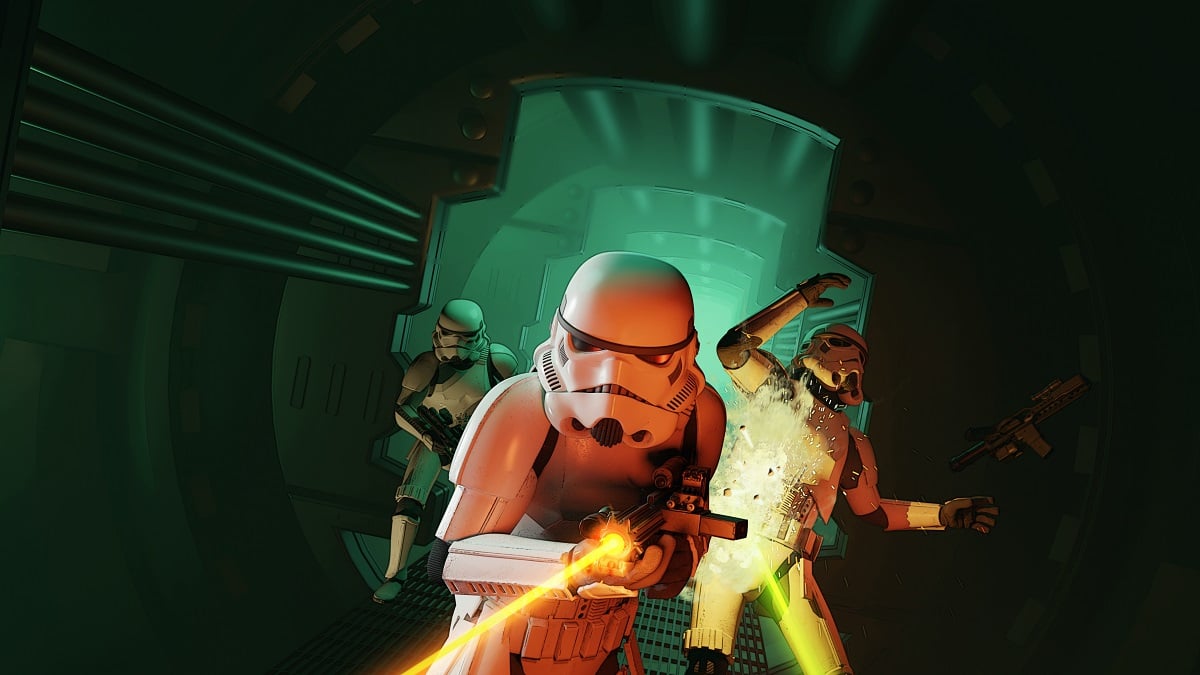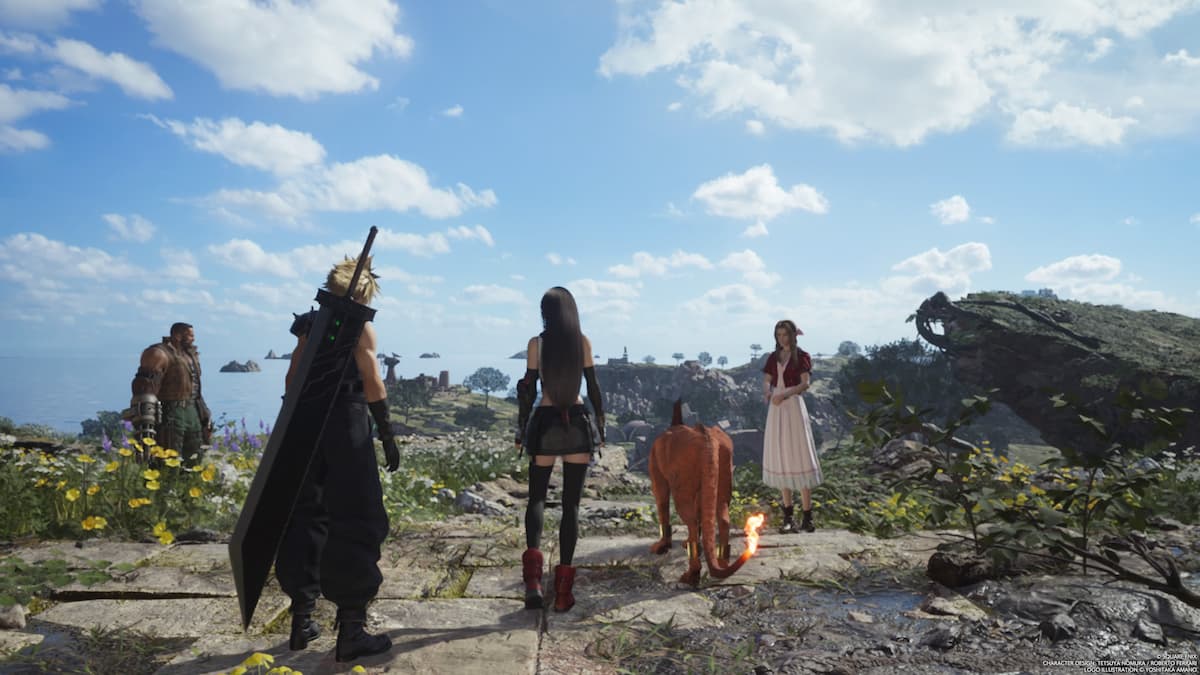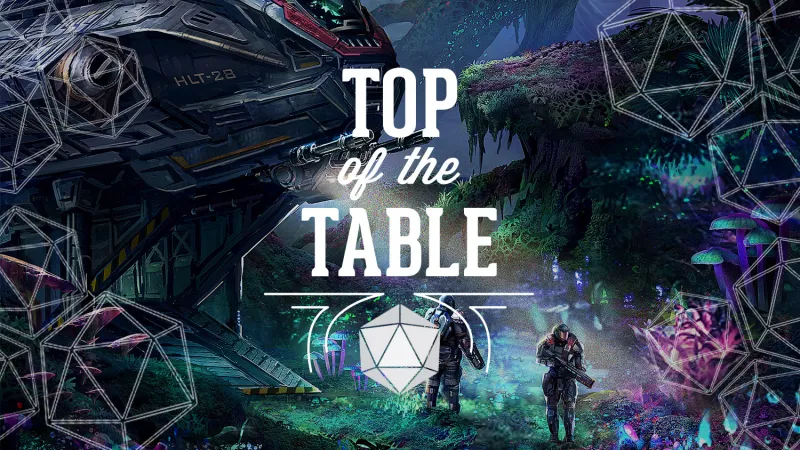
A couple of weeks ago, we explored a few of the many RPGs that offer a different take on the fantasy genre from that most familiar and well-known experience available in Dungeons & Dragons. Many experienced D&D players will be the first to tell you; one of the best ways to expand your horizons and become a better player or GM is to experience what other games have to offer.
But in this golden age of tabletop role-playing, there are plenty of options that stretch beyond the traditional confines of the fantasy genre, including some wonderful adventures into the realms of science fiction. Here are several top-notch options to try out, if you and your gaming group are ready for the heady speculative realms of futuristic storytelling.
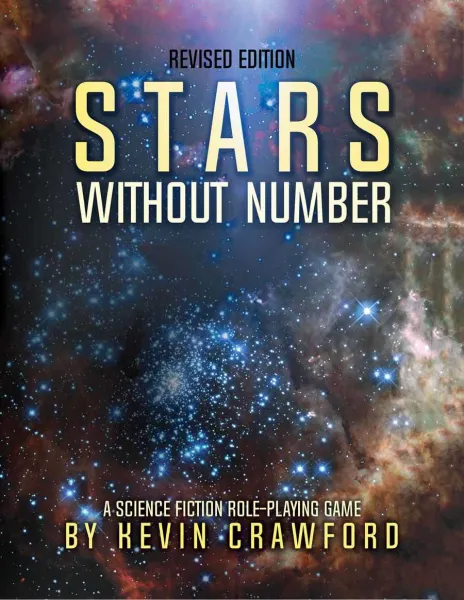
Stars Without Number
Publisher: Sine Nomine Publishing
Players already familiar with the mechanics of D&D will find a lot of recognizable territory in Stars Without Number, a fascinating retro sci-fi RPG that draws inspiration from the earliest days of the tabletop gaming hobby, a tradition also often called the Old School Renaissance.
In this sandbox-style RPG, players band together to explore a vast sector of space in the year 3200, after humanity has spread out across the stars, and in the wake of the fall of a vast interstellar empire. While familiar trappings, including attributes like Strength and Dexterity, show the roots of the system, Stars Without Number launches into entirely different arenas in several ways. A thoughtfully imagined system supports psychic powers. Players build and control starships to move through the universe. More than anything, this “feels” like the classic science-fiction setting that first comes to mind when you think about the genre.
Unlike many role-playing games, Stars Without Number encourages the PCs to adopt their own goals, and use those to drive much of the action. The sandbox element isn’t just lip service; the expectation is that GMs and players work together to craft a story unique to the characters they’ve rolled up, and use the setting as a backdrop to see how those tales unfold.
Also Consider: Traveller, Rocket Age
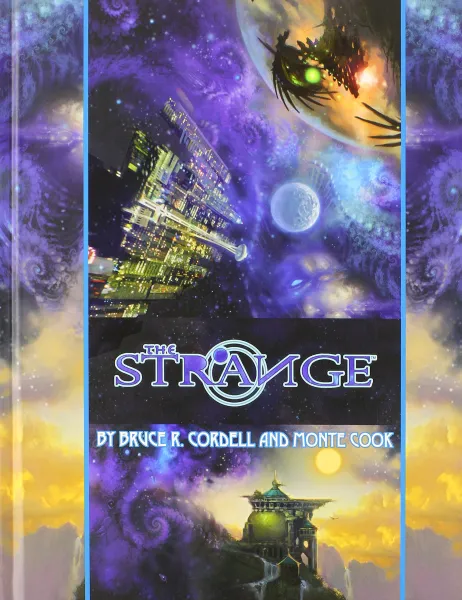
The Strange
Publisher: Monte Cook Games
To discover a dose of the truly odd for a player group ready for something completely different, it’s easy to recommend the aptly named RPG called The Strange. Brought to us by the same publisher as the wonderful Numenera, The Strange is a game about alternate dimensions – and some of those dimensions are downright bonkers.
Ostensibly, The Strange is set on Earth. But the PCs of the game are capable of traveling to parallel “recursions” that feature their own rules of reality, creating a vast networked multiverse of pocket dimensions. And in each, your character might appear differently, but maintain the same core consciousness and goals. These recursions are born from the stories and legends of Earth, creating a vast playground of potential alternate settings, which you jump between from one session to the next. In practical terms, it gives you permission to “borrow” entire settings to pull into your game, letting PCs freely pass between recursions inspired by worlds of The Matrix, Star Wars, The Wizard of Oz, DC superheroes, or any other favorite story world that you like.
In gameplay, The Strange closely follows the freeform and narrative focus of Monte Cook Games’ Cypher System. That means that a lot of action and narrative direction is driven by the players, and enormous flexibility is given to players to build a unique character. The rules are kept light, and your gaming group is provided the freedom to shape nearly every aspect of the ongoing campaign. But don’t worry, The Strange has plenty of insane ideas to get you started on your adventure.
Also Consider: Invisible Sun, Cypher System: The Stars Are Fire
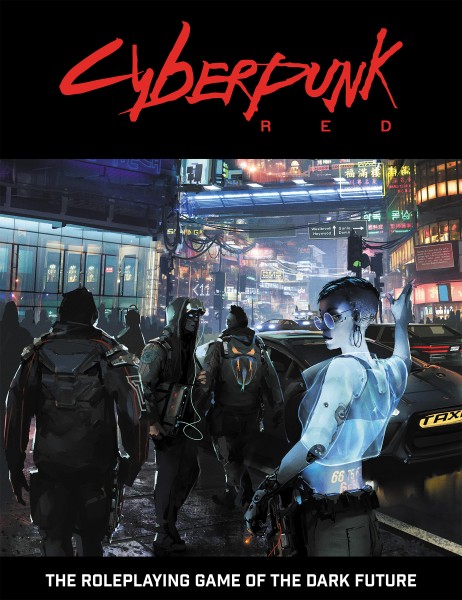
Cyberpunk RED
Publisher: R. Talsorian Games
While the latest edition of the Cyberpunk tabletop RPG just recently released, its history stretches back decades, and served as the inspiration and source material for CD Projekt Red’s recent release of Cyberpunk 2077. No matter your feelings about that game, the latest iteration of the tabletop experience is richly imagined and a ton of fun; it’s an ideal place to take your gaming group if your vision of science fiction involve near-future, neon-lit urban playgrounds, filled with gritty fights and high style.
For those keeping track, Cyberpunk RED is purpose-built to bridge the gap in timeline from the earliest editions of the tabletop RPG and the new video game. Your group is given the latitude to explore Night City (or beyond) and uncover the breadth of characters living in the sometimes bleak crossover space between being fully human, and giving over fully to technology.
Cyberpunk RED does a standout job in offering up a straightforward core mechanic that governs important interactions like basic combat and skills, but plenty of more involved options for players interested in going deeper, including the complexities of cyberware, and how they slowly degrade a connection to a character’s own undefinable soul. This is also a game that embraces the importance of style and appearance, placing a big emphasis on how “cool” your character is, the clothes they wear, and the way they carry themselves. If that dynamic matches what some of the players in your group most enjoy about role-playing, it’s an ideal game to consider bringing to the table.
Also Consider: Shadowrun: Sixth World, Altered Carbon: The Role Playing Game

Alien: The Roleplaying Game
Publisher: Free League Publishing
If you like your science fiction tinged with a healthy dose of horror, you likely already enjoy the universe of the Alien films. What you may not know is that the RPG adaptation of that setting is such great fun, providing gaming groups an easy-to-learn system that ably supports truly dark and scary encounters against the iconic xenomorphs.
The Alien RPG employs the same straightforward Year Zero gaming engine found in games like Tales from the Loop and Vaesen. A combination of character skills and attributes determine a pool of six-sided dice that must be rolled, with any rolled “six” leading to a success. But in the Alien RPG, the system has a fun added element defined by stress, which can both give you clutch extra dice in critical moments, but also lead to particularly devastating outcomes upon failure.
My favorite aspect of Alien is its two styles of play. The campaign style caters to groups that really want to dive in for an extended multi-session arc – perfect for big fans who just want to enjoy a lengthy tale woven through this surprisingly rich fiction. But for many, the greater draw will be the unique cinematic mode that the game offers, built to offer one-shot adventures that more closely resemble individual movies in the franchise. In these tight and terrifying sessions, it’s quite likely that some (or even most or all) of the PCs will meet a grisly demise, but the brisk nature of the setting ensures everyone still has a great time.
Also Consider: Coriolis, Mutant Year Zero
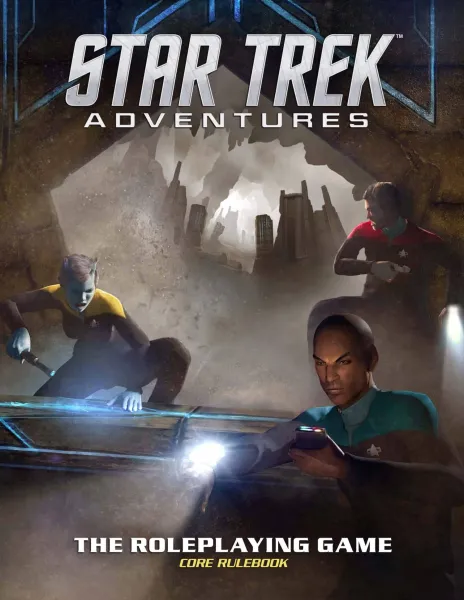
Star Trek Adventures
Publisher: Modiphius
In the world of licensed sci-fi RPGs, one of the easiest to recommend is Star Trek Adventures. That’s because almost everyone who might be willing to play a tabletop RPG likely has at least a passing familiarity with the setting. In addition, the game itself is smartly organized and well-tuned to focus on the sort of cooperative interactions that are the heart of most Star Trek stories. At the same time, it also takes its setting seriously enough that even hardcore Trek enthusiasts will have trouble finding reason to complain.
Star Trek Adventures supports a wide variety of potential styles of play, including heading back to the Original Series era of Kirk and Spock, or oven the more grounded and socially complex storylines of shows like Deep Space Nine. But the core rulebook is most firmly focused on offering the fantasy I believe most fans will be most eager to try out – controlling a Star Fleet crew in the Next Generation era, exploring strange new worlds and seeking out new life and new civilizations in daring adventures.
The writers and designers of this Star Trek RPG exhibit a nearly encyclopedic knowledge of Star Trek fiction and style, which is apparent after only a brief time digging into the Core Rulebook. It’s also just a great-playing game, using Modiphius’ 2d20 system to create tense and exciting encounters, with fun rules that encourage players to work together to take on the most difficult tasks. If you’ve ever found yourself wondering if there was a way to really make up and live out the same sort of stories that unfold in your favorite Star Trek episodes, I think you’ll be pleasantly surprised with what’s on offer here.
Also Consider: Mutant Chronicles 3rd Edition, John Carter of Mars
Honorable mentions:
I’d be remiss to not mention two of my favorite role-playing games of recent years in this article. I hesitated to include them as dedicated sci-fi entries, or in the companion article that focused on fantasy RPGs, because both so perfectly straddle the line in-between. Star Wars and Starfinder are both squarely in the “science-fantasy” arena, but both games are also too delightful to be overlooked.
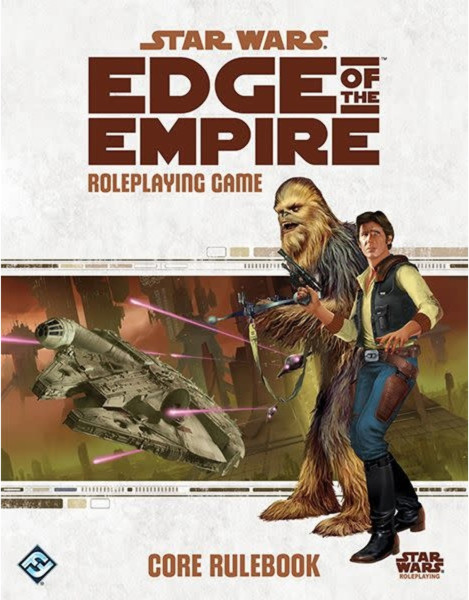
Several attempts have been made over the years to capture the fun of the Star Wars universe in a role-playing setting, both in official and non-official formats. But I’m especially fond of Fantasy Flight’s recent efforts, which manifested as several distinct RPGs that shared a common system, each focused on different tones of play. Star Wars: Age of Rebellion is all about the Galactic Civil War, Star Wars: Edge of the Empire handles outlaws and smugglers in the dark underbelly of the galaxy, and Star Wars: Force and Destiny focuses squarely on the power of the Force and its practitioners. But all three sourcebooks share a common language, and support mostly shared rules of play. Whichever “style” appeals to you, the core game itself is simply outstanding, using a set of custom dice to encourage the kind of complex narrative outcomes that you so often see in Star Wars fiction, where success and failure are often tinged by additional twists. Like many aspects of the Star Wars fiction, the Fantasy Flight RPG combines the big heart and emotional grandeur of a sweeping fantasy epic, alongside the spaceships, droids, and lasers of science fiction. If you choose to give it a try, I don’t think you’ll be disappointed.
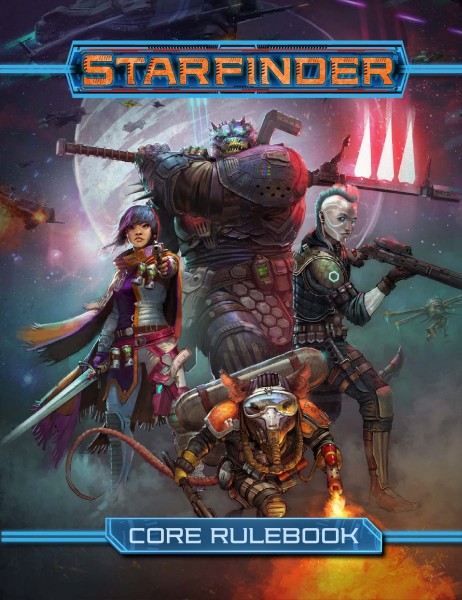
Starfinder undoubtedly drew some strong inspiration from the space opera richness of Star Wars, but it’s a place to go if you want something a bit more fresh, and also a ruleset that doesn’t veer far from the familiar environs of D&D. That’s because Starfinder is a far-future spin-off of the Pathfinder RPG, which itself was an offshoot from an earlier edition of Dungeons & Dragons. As such, Starfinder maintains much of the recognizable nomenclature and structure of a D&D game, but adds in crazy aliens, ship battles, planetary exploration, and more. But just to keep your on your toes, Starfinder also maintains much of the magic and many of the creatures from the Pathfinder universe. If you like the idea of a flaming +2 plasma rifle that you use to fight necromantic liches that come from a planet of all undead, Starfinder may be right up your alley.
There are plenty more wonderful sci-fi RPGs to discover, so don’t be surprised if you find yourself going down a rabbit hole if you decide to investigate these and other related games. Speaking as a longtime player and GM, I can say with confidence that few things can enliven a stale gaming dynamic like introducing a new game system – so long as you can get some intellectual buy-in from all involved players to learn some new mechanics. Moving from the familiar environs of classic western fantasy and launching out into space can be especially rewarding as a departure, even if you ultimately decide to return to the excellent and highly useable systems of D&D, or whatever other game you play most.
If you’re looking for more recommendations in the tabletop sphere, check out our Top of the Table hub, or dig through the recent round-up of the Best Board Games of 2020, as well as the Best Tabletop RPG releases of 2020. Finally, if you need help finding the right game for you and your group, feel free to drop me a line, and I’ll do my best to help you find what you’re looking for.
